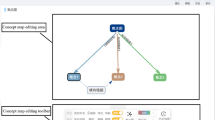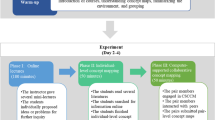Abstract
Fragmented learning is a way to acquire discrete knowledge in the state of discontinuous time and space. In the development of the Internet and related technologies, it has become the new normal of personalized learning. This article considers the comprehensive application of ontology theory and knowledge aggregation to the process of knowledge reconstruction, and at the same time incorporates information technologies such as machine learning and semantic analysis, to establish a new self-organizing neural network-based fragmented knowledge cluster aggregation method. Solve the problem that existing knowledge organization methods are not suitable for fragmented learning. First, establish the concept of knowledge meta-data and define meta-data. And build knowledge clusters based on metadata and strong associations. The aggregated knowledge clusters contain richer and more systematic information, have stronger non-deterministic information description capabilities, and have stronger scalability. Second, establish knowledge cluster associations. The rational connection of knowledge clusters is conducive to the fusion and evolution of information, and the joint action of multiple knowledge clusters is an effective way to evolve new knowledge. Third, the integration of the concept of knowledge ontology and the insufficiency of the interaction between the organic knowledge clusters make up for the inaccuracy and incompleteness of the fragmented knowledge itself. The simulation proves that this method provides a new theoretical support and reform ideas for fragmented learning methods, and has a good role in promoting education fairness, optimizing education methods, and disseminating education content.





Similar content being viewed by others
References
Becker SA, Cummins M, Davis A, Freeman A, Glesinger Hall C, Ananthanarayanan V (2017) NMC Horizon Report (2017 higher education). The New Media Consortium, Austin, Texas. http://www.nmc.org/publication/nmc-horizon-report-2017-higher-education-edition/
Bienkowski MA, Means B, Feng M (2014) Enhancing teaching and learning through educational data mining and learning analytics: an issue brief. United States Department of Education. http://www.ed.gov/edblogs/technology/files/2012/03/edm-la-brief.pdf
Cotterill S (2014) Dynamic learning maps project proposal. https://learning-maps.ncl.ac.uk/about
D'Amato C, Staab S, Tettamanzi AGB et al (2016) Ontology enrichment by discovering multi-relational association rules from ontological knowledge bases. In: ACM symposium on applied computing, ACM, pp 333–338
Hyun J, Ediger R, Lee D (2017) Students’ satisfaction on their learning process in active learning and traditional classrooms. Int J Teach Learn Higher Educ 29:108
Liang K, Wang C, Zhang Y et al (2018) Knowledge aggregation and intelligent guidance for fragmented learning. Procedia Comput Sci 131:656–664
Liu M, Zhang S, Yude HE (2018) Classification study of differential telecom users based on SOM neural network. J Guangxi Norm Univ 36:17–24
Lykourentzou I et al (2010) CorpWiki: a self-regulating wiki to promote corporate collective intelligence through expert peer matching. Inf Sci 180:18–38
Ridgway M (2016) Aesthetic animism: digital poetry’s ontological implications. Textual Pract 1–3
Segaran T (2007) Programming collective intelligence: building smart Web2.0 applications. O.Reilly Media Ine., SebastoPol
Singh VK et al (2009) Collective intelligence based computational approach to web intelligence. In: Proceedings of international conference on web information systems and mining. IEEE Computer Society, Shanghai, pp 27–31
Šorgo A, Šiling R (2017) Fragmented knowledge and missing connections between knowledge from different hierarchical organisational levels of reproduction among adolescents and young adults. Center Educ Policy Stud J 7(1):69–71
Thakur S, Dharavath R (2018) Artificial neural network based prediction of malaria abundances using Big Data: a knowledge capturing approach. Clin Epidemiol Glob Health 7:121–126
Wang ZL (2017) A new view on knowledge and learning facing the era of intelligence. J Distance Educ 35(3):3–10
Yu XH, Zhu ZT (2013) A Self-regulated learning model based on personal learning environment: from the hierarchical, fragmental, related design perspective. Open Educ Res 19(3):103–112
Funding
This work is supported by the National Natural Science Foundation of China (No. 61807024, No. 61702367).
Author information
Authors and Affiliations
Corresponding author
Ethics declarations
Conflicts of interest
The authors declare no conflict of interest.
Additional information
Publisher's Note
Springer Nature remains neutral with regard to jurisdictional claims in published maps and institutional affiliations.
Rights and permissions
About this article
Cite this article
Liang, K., Zhai, J., Ren, Y. et al. Fragmented Knowledge Clustering method based on SOM. Int J Syst Assur Eng Manag 14, 188–195 (2023). https://doi.org/10.1007/s13198-021-01504-1
Received:
Revised:
Accepted:
Published:
Issue Date:
DOI: https://doi.org/10.1007/s13198-021-01504-1




